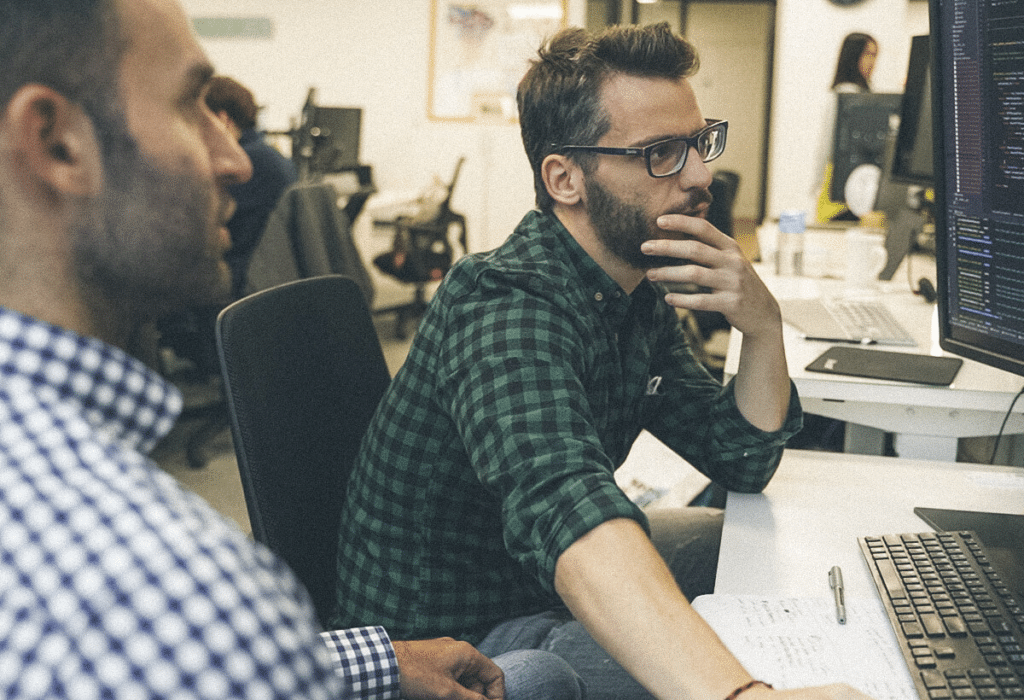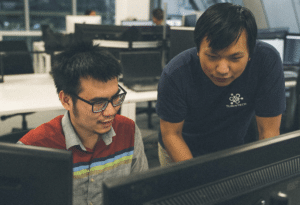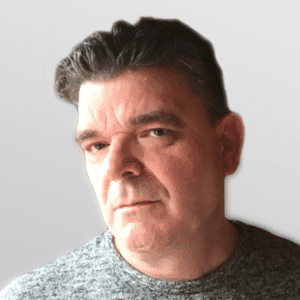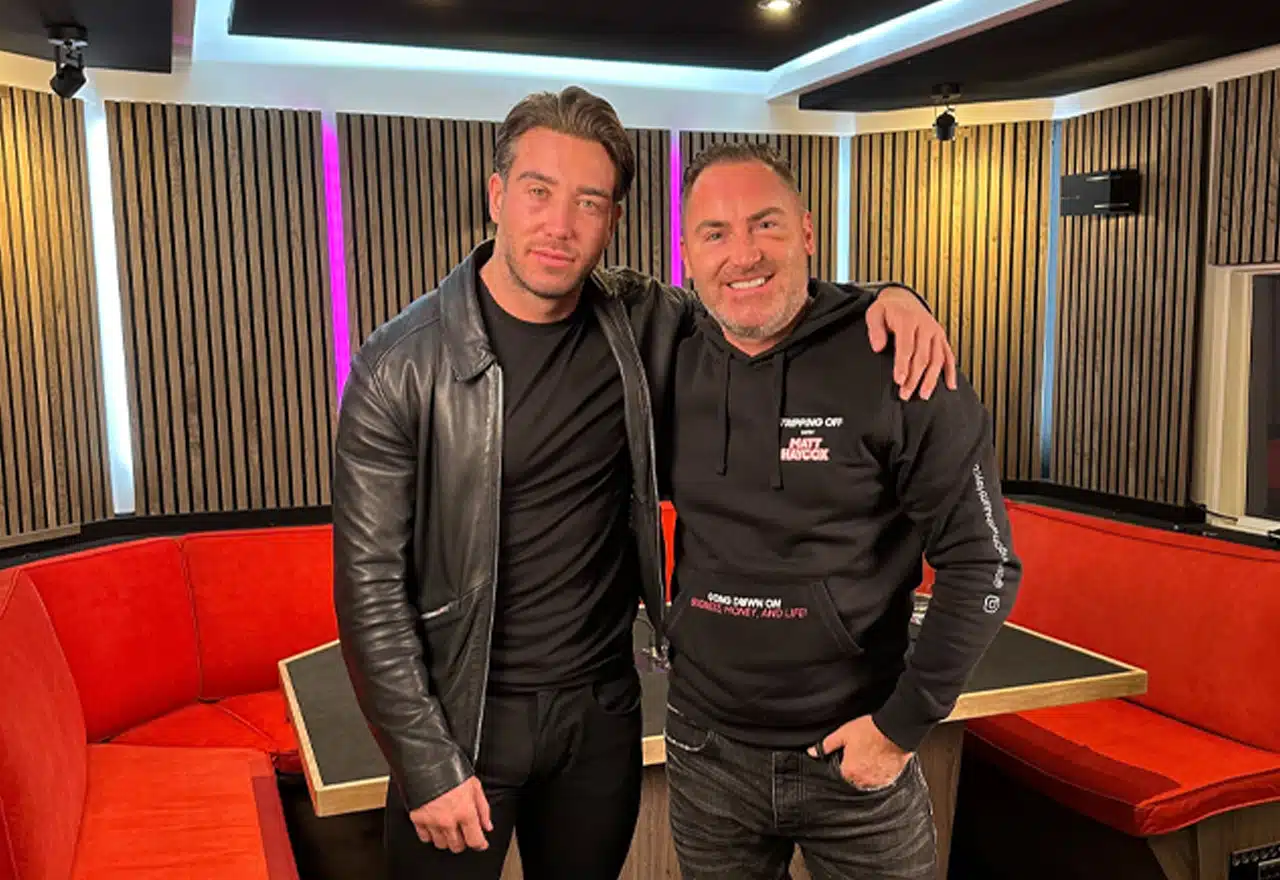
Tech entrepreneur Leslie Kanthan has spent the last five years building a company he co-founded in the City of London. He is about to reap the rewards in the growing AI market expected to yield billions.
You could hear a pin drop in the office that is the heart of Leslie Kanthan’s business he co-founded in the City of London, but over the next few years, it is likely to make a lot of noise and billions of pounds in the fast-unfolding market that is AI.
In the quiet office of TurinTech AI 40 data scientists sit at terminals, tip-tapping away, mapping out the future for AI and with it a small slice of our future; coming up with ways to make code faster, simpler and cheaper largely for banks and financial institutions. It is far from an easy sell.
AI is not an easy sell
“In general, getting AI products into large companies and corporates takes time, especially banks, it can be six to twelve months. Especially if you are an early-stage start-up, they need to see a lot of validation and proof points, because there is always a risk to them that the start-up, or the business, may not exist. So, it is more to do with the logistics of that; so AI is a very high-end field, it needs a lot of understanding and expertise, so it can be quite tricky,” says Kanthan.
“But, what I would say, is that now, with AI taking off the way it is; companies are hiring loads and loads of data scientists and technology professionals to help them with this and it is hard to imagine a space that has software that doesn’t have some aspect of AI in it. So we are now reaching the stage where products are being adopted into institutions a little bit quicker than they were before.”
Big business in the States- not yet here
AI is big business and popular among investors in the United States, but it is still finding its feet in the United Kingdom and Europe. Kanthan reckons there are only around 20 companies, like his, in the vanguard of a burgeoning tech industry in the UK that promises billions in a conservative market.
“Competition between AI companies is not fierce, but competition for funding is fierce.”
This is a little bit different compared to America, right, so in America there is a huge amount of funding and interest in innovation compared to what it is in Europe. So, Europe is a little bit more conservative than it is in the US. In the US they are trying all these ideas so it is different there,” he says.
From comfortable corporate to entrepreneur
Kanthan has a master’s in Graph Theory and a PhD in mathematics and computer science from University College London. Back in 2018, he also had a fairly comfortable corporate job at Credit Suisse.
“I was doing research working in the area of data science and I realised that a lot of financial institutions were still getting to grips with AI and being an entrepreneur with means I would effectively be able to spin out what we were working on and solve those particular cases and problems, not just for one bank but for many financial institutions,” he says.
“AI is quite a general topic and specifically you have machine learning, that’s the area I am more focused in. That is why I felt the time was right to get away more from being in financial services and be part of the process of developing AI further.”
With a like-minded group of professionals he founded TurinTech AI; raised $ 1 million in seed funding, in 2019, and became commercial just over a year ago. It has raised four times that amount of seed capital since then.

AI does the banking: “stress test”
TurinTech AI now deals with banks and financial institutions. Among its recent business is building data into models that can tell you whether or not a person should be granted a mortgage.
A bigger task awaits in the banks. TurinTech AI has come up with a model that can “stress test” banks in real time.
So-called bank “stress testing” is controversial. It was introduced into the financial system following the crash of 2008. The idea was to test whether banks had sufficient capital and safeguards to ward off a repeat of the catastrophic collapse that cost customers billions of dollars.
Surely, trusting this vital task to a computer code is risky, I suggest.
“Banks and institutions are very careful with AI products specifically; they are very careful with open AI. Had a conversation with a bank very recently, it is blocked throughout the bank because they are worried because they don’t know what public, or private data that is leaked within that could then disrupt things within the bank and also, at the same time, copyrights, trademarks and legalities,” he says.
Talent shortage is a problem
One of the biggest problems Kanthan faces is finding talent to drive the business which can be scarce and expensive. Half of his 40 staff are PhDs, the rest are at least master’s degree level.
“It is difficult to find talent. In the UK universities are doing a great job of training people…It is still very difficult, a lot of the best talent goes and works for big, well-known, companies, like Google, Facebook and Microsoft. So, enticing them from that kind of organisation takes a lot.”
As the AI market opens up in the UK, surely, the talent shortage will ease.
Want more insights on sports, current events, business, industry and more? Sign up for the Matt Haycox newsletter for fresh updates every week.





